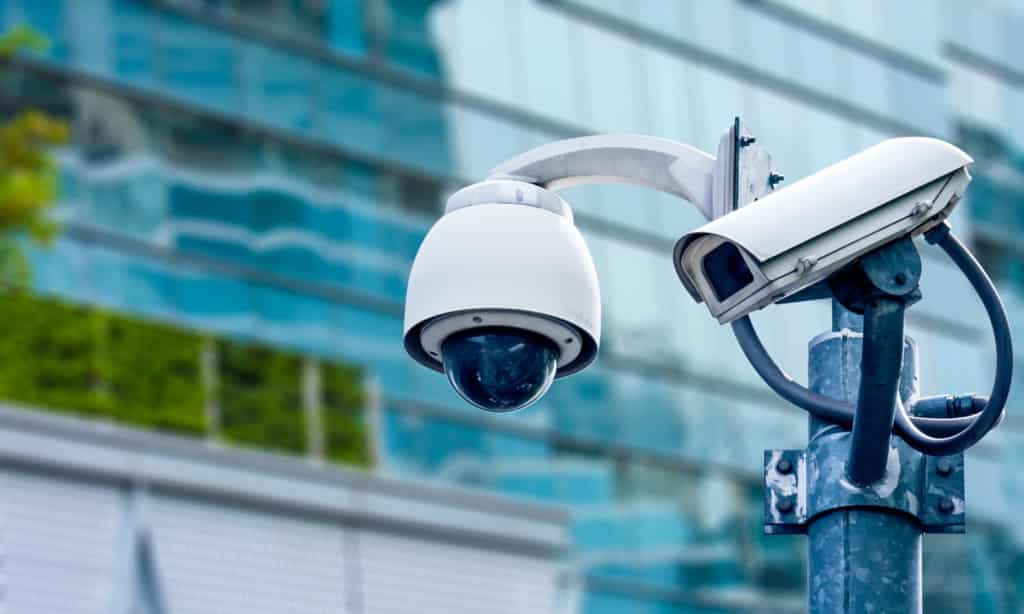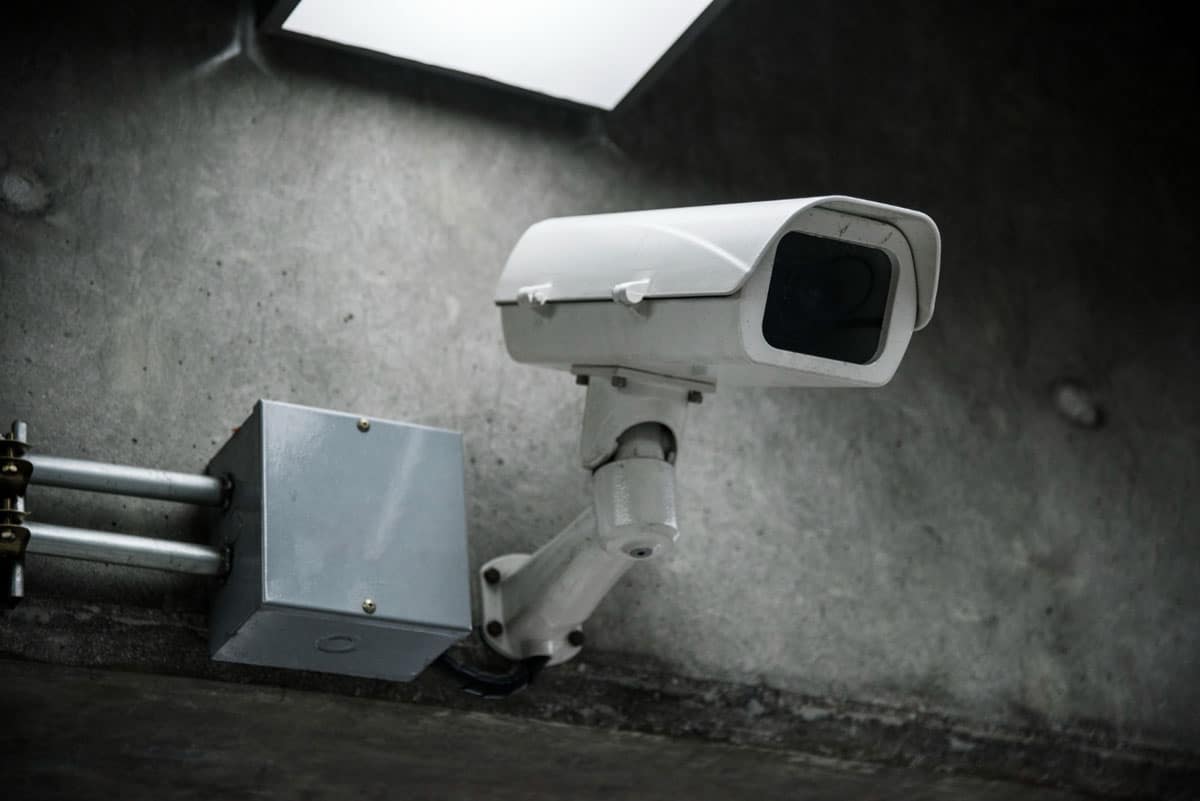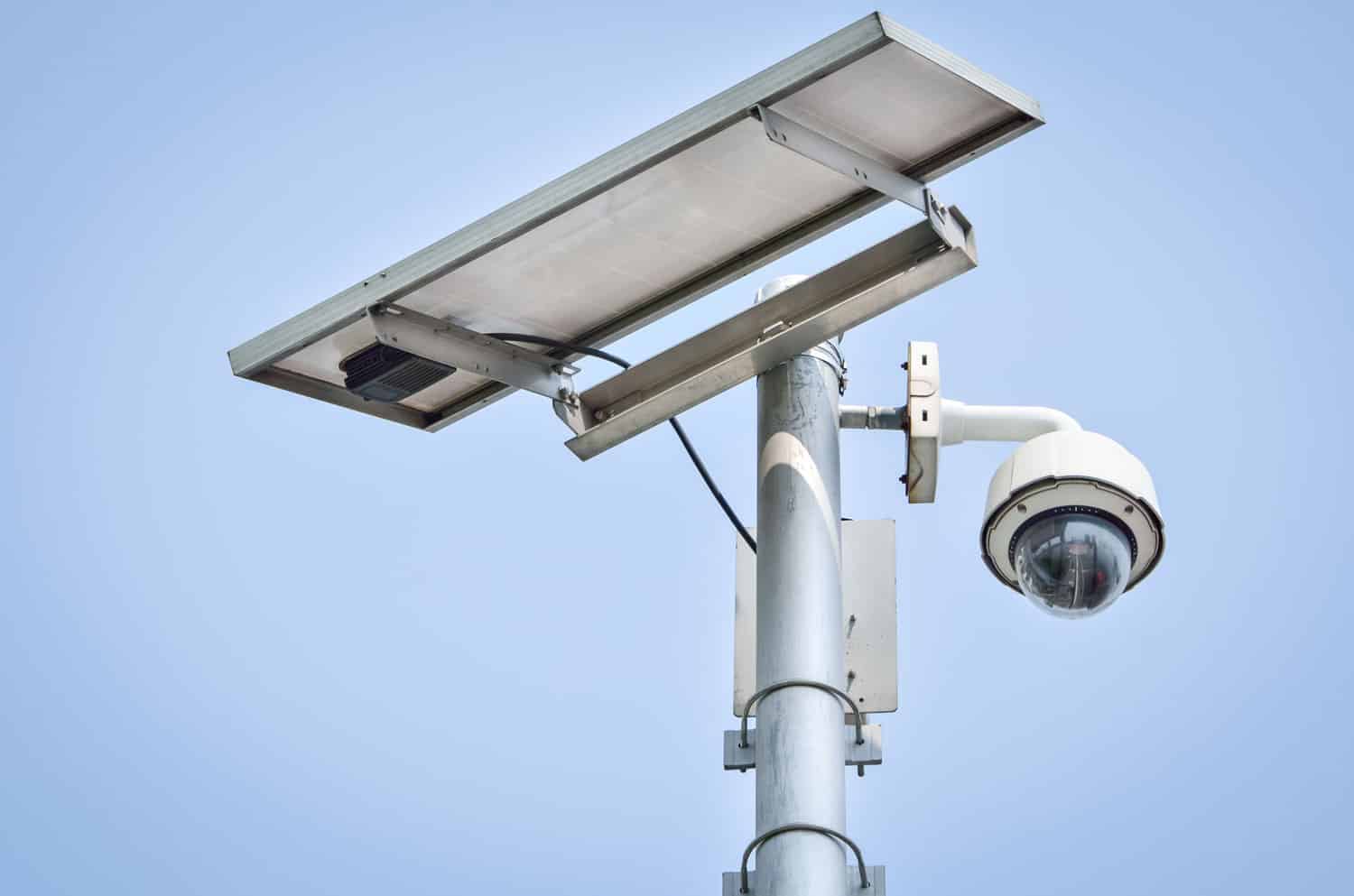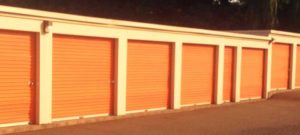Security cameras have come a long way since the oldest CCTV systems. Today, you can find solar powered cameras with the latest artificial intelligence software (AI). But before you start selecting the bells and whistles and other features of your security cameras, there’s a more basic requirement: Do you need fixed surveillance or mobile security cameras? What’s the difference between fixed vs. mobile security systems?
What is Fixed Surveillance?
Fixed surveillance cameras stay put, usually for their deployment lifetime. These cameras can’t move unless they are remounted and rewired. The purpose of a fixed camera is to monitor a specific static spot in your business. Fixed cameras can mount on most structures, usually at building entrances or in parking garages. They can be installed just about anywhere.
Fixed security cameras can be hardwired into a security infrastructure or be wireless. Hardwired cameras often record film to an on-premises recording device, or they can use cabling to connect to the internet. They can also connect wirelessly to the internet. Whether hard wired or wireless, cameras that connect to the internet upload what’s happening in real time at your business.
Fixed surveillance can also refer to cameras with static lenses. A fixed lens doesn’t allow movements such as zoom. You cannot adjust the focal length of these cameras. That said, many modern security camera businesses may offer fixed cameras with pan-tilt-zoom capabilities. With this add-on you can remotely move where your camera is pointing as needed. However, not every security company offers these.
Typically, they point in a static direction, but provide a wide angle view of the area. Even without pan-tilt-zoom capabilities, they are great for continuous recording of a single area. Other benefits include their lower cost and easy installation. Established businesses use them for constant surveillance of high and low-traffic areas.
What Are the Pros and Cons of Fixed Surveillance?
Fixed surveillance cameras have benefits and disadvantages for your business:
Pros of Fixed Cameras
-
Deterrence
If the camera is out in the open, it can deter crime. An easily seen fixed camera may make criminals think twice before engaging in illegal behavior.
-
Constant surveillance
Fixed surveillance cameras can monitor a specific location 24/7. Virtual security guards can watch the live feed if the camera is internet-enabled.
-
Evidence
Static cameras capture evidence footage for police. Fixed surveillance increases the chance of successful prosecution.
-
Cost-effective
Fixed video surveillance is less expensive than live security guards.
-
Lower Liability
Most times, fixed cameras can replace a live security guard or give a live security guard the tools they need to monitor the property without actually being on the property. With the live guard out of harm’s way, they are less liable to get injured or attacked on the job.
-
Remote monitoring
If the camera is internet-connected (with the WiFi available, or an installed aircard), fixed surveillance tools can be monitored remotely.
Cons of Fixed Surveillance
-
Limited viewing area
Fixed cameras correlate to a specific coverage area. These cameras only capture footage in their field of vision. It is certainly possible to completely monitor a property with fixed cameras; it may just take more of them.
-
Blind spots
A single fixed surveillance camera will have blind spots, certain areas just beyond the field of vision will remain off screen. This is why a proper fixed security camera setup will have overlapping camera angles so that nothing is missed.
-
Vandalism target
A visible fixed camera can deter crime. However, if the camera is accessible to a criminal, it’s also a vandalism target. Fortunately, modern fixed security cameras have health monitoring software that instantly notifies the provider when one has gone offline – turning the vandalism into a warning alarm.
-
Privacy issues
Fixed surveillance tools can sometimes raise privacy concerns. They may capture footage of people without their knowledge or consent. However, an ideal setup will avoid these issues by only recording outdoors locations at times when people aren’t supposed to be on the premises.
-
Limited flexibility
Without a pan-tilt-zoom addon, a fixed video camera can’t reposition easily once installed. If your security’s view needs adjusting, an installation expert will have to do this for you.
Fixed surveillance is perfect for businesses that need a permanent security solution. One that doesn’t change often and still keeps people off their property after hours. For those that need a more temporary solution (like an ever-changing construction site, or a property that doesn’t have easy access to WiFi or electricity) a mobile surveillance system may be more beneficial. Some companies even use a mix of mobile and fixed surveillance tools.
But how do you know which one you need? What is different about mobile security?
What Are Mobile Security Cameras?
No – we aren’t talking about your smartphone. While “mobile security” is commonly confused with security cameras connected to your phone (or even cyber security for your phone!), by definition, a mobile security camera is a camera that can be easily moved. It has mobility. Usually these cameras don’t need to be mounted on anything. They come with their own stand (and the stand usually has wheels that can lock into place.) They could also mount to a moveable structure (like a trailer).
Despite their ability to move, a trespasser can’t move the cameras quite as easily. If a mobile camera moves without authorization, or is tampered with, remote virtual guards are alerted. Once alerted, the team can call the authorities or deter the unwanted visitor.
Mobile security cameras are commonly used at construction sites. Since these job sites are always changing vertically and horizontally, they need cameras that can move along with their progress. These properties don’t always have a stable (or permanent) equipment mounting area. Mobile security cameras are also commonly used at temporary events, such as festivals, or in areas where permanent fixed structures are not feasible, like farms and ranches.
Despite their incredible flexibility, they can still securely connect to the internet wirelessly over a cellphone network. Even if the property doesn’t have access to WiFi, they typically come with air cards that provide internet connection virtually anywhere. They are a great option to help live security guards do their jobs more efficiently as well. Now they can have a bird’s eye view with a live feed from a safe, remote location.
Both fixed and mobile security cameras with WiFi connection can send alerts to a cellphone. Users can easily watch the video from an online hub. This allows a 24/7/365 view of what’s going on at a business. Cameras with varifocal lenses – that is, lenses that can change things like focal length and magnification – can be controlled from the online hub. A remote guard can pan in to focus on a specific area.
What Are the Pros and Cons of Mobile Security Cameras?
Mobile security cameras have benefits and disadvantages for your business:
Pros of Mobile Security Cameras
-
Flexibility
Mobile security cameras can move from one location to another. This mobility offers a great deal of flexibility in your response to changing security needs.
-
Remote monitoring
Like fixed surveillance, you can access mobile security cameras remotely. Remote monitoring allows real-time viewing of a temporary location, saving the costs of live security.
-
Temporary surveillance
Mobile security can be installed, adjusted, and removed quickly and easily. In other words, they are ultra flexible and can move around as structures or events begin, change, and end.
-
Battery or solar powered
Mobile security cameras can be solar and battery powered. Mobile security is a good option if the location doesn’t have power or it’s difficult to connect. These cameras can connect to the internet over a cell network or with an air card and don’t need power.
-
Versatility
Mobile surveillance is a versatile option for almost any application. These security tools are successful in a variety of situations and locations, regardless of access to stable mounting structures, electricity, or WiFi.
Cons of Mobile Security Cameras
-
Limited coverage
Like fixed cameras, these tools are designed for a specific and limited coverage area. Wanting comprehensive coverage will require multiple cameras, which can be more difficult in remote locations.
-
Maintenance
Mobile units require regular maintenance, including battery charging. Companies that offer solar-powered cameras, however, do not need to charge.
-
Vulnerability
Mobile video surveillance tools are potentially vulnerable to tampering or theft. These units are meant to be mobile and could be moved or stolen. As with fixed cameras, when this happens, cameras equipped with health monitoring software will immediately alert the security team.
-
Lens Cleanliness
Since these mobile cameras are typically used outdoors; weather, sun rays, construction dust/debris, bugs, and birds can take their toll on the cleanliness of the lens. A dirty lens makes things tougher to see – so these lenses should be cleaned at least once or twice a month.
Pro-Vigil is a leading provider of state-of-the-art video surveillance solutions. We can assess your business, create, and execute the right tools to protect your assets. Contact our team today to discuss your mobile and fixed surveillance options.
Q & A
Fixed video surveillance means the installed cameras do not move or rotate. Fixed cameras are placed strategically in building entrances or parking lots. Fixed video surveillance encompasses a wide variety of camera types. They can be wired or wireless.
Mobile security cameras are portable and easily moved from one location to another. These cameras are usually lighter and easy to install. They deploy quickly and are perfect for monitoring temporary sites such as outdoor events or construction sites. Mobile security cameras are wireless and often run on a mix of solar and/or battery power. Mobile security cameras upload their feeds to the internet via a wireless network.









